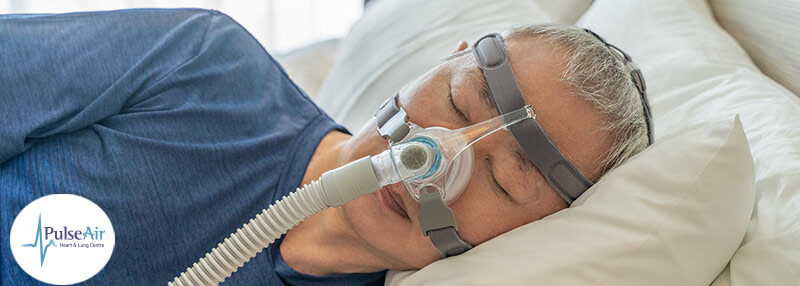Sleep apnea is a common sleep disorder that affects millions of people worldwide. It can lead to poor quality of sleep, daytime fatigue, and a range of associated health issues. While living with sleep apnea can be challenging, it is possible to cope effectively and thrive with the right strategies and support. In this blog, we will discuss essential tips for living with sleep apnea, helping you improve your sleep quality and overall well-being.
Seek a Professional Diagnosis
If you suspect you have sleep apnea or are experiencing symptoms such as loud snoring, frequent awakenings, or excessive daytime sleepiness, seek a professional diagnosis. A sleep specialist can conduct a sleep study, which may involve an overnight stay at a sleep center or the use of a home sleep apnea test. A proper diagnosis is the first step in managing your condition. At PulseAir, we offer laboratory and home sleep testing, for more information visit our website.
Follow Your Treatment Plan
Upon diagnosis, your healthcare provider will recommend a treatment plan tailored to your specific needs. The most common treatment for sleep apnea is continuous positive airway pressure (CPAP) therapy, which involves wearing a mask that delivers a constant stream of air to keep your airway open. Adherence to your prescribed treatment plan is crucial for effectively managing sleep apnea and improving your sleep quality.
Maintain a Healthy Lifestyle
Lifestyle changes can significantly impact sleep apnea. Focus on the following to improve your overall health:
- Weight management: Excess weight can contribute to the development and severity of sleep apnea. Losing weight through a balanced diet and regular exercise can help reduce symptoms.
- Avoid alcohol and sedatives: These substances can relax the throat muscles and worsen sleep apnea. Limit or eliminate their use, especially before bedtime.
- Quit smoking: Smoking can increase inflammation and fluid retention in the upper airway, exacerbating sleep apnea. Quitting smoking can improve your symptoms.
Optimize Your Sleep Environment
Create a comfortable and conducive sleep environment. Here are a few tips to help you optimize your sleep environment:
- Use a comfortable mattress and pillows that support your head and neck.
- Keep the bedroom cool, dark, and quiet.
- Reduce exposure to blue light from electronic devices before bedtime.
- Maintain a regular sleep schedule.
Practice Good Sleep Hygiene
Establish a routine that promotes healthy sleep habits. This may include:
- Going to bed and waking up at the same time each day.
- Avoiding caffeine and heavy meals close to bedtime.
- Relaxing with calming activities like reading or stretching before sleep.
Living with sleep apnea can be challenging, but it's essential to remember that effective management is possible. By seeking a professional diagnosis, following your treatment plan, maintaining a healthy lifestyle, optimizing your sleep environment, and seeking support when needed, you can improve your sleep quality and overall well-being. With the right strategies, you can cope effectively with sleep apnea and thrive in your daily life.
At PulseAir Heart and Lung Centre, we offer sleep apnea diagnosis and treatment. If you or a loved one is struggling with sleep apnea, please visit our website or contact us to find out more about how we can help you with your sleep apnea management.


